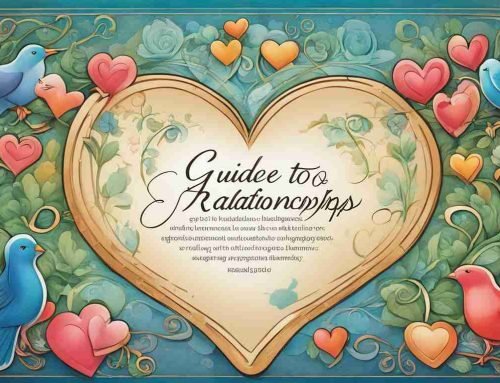Human beings are social creatures who thrive on emotional connections. Building and strengthening emotional bonds with loved ones is vital for overall well-being and happiness. In this article, we will provide expert tips on how to nurture emotional intimacy, foster strong emotional bonds, and cultivate lasting emotional connections in our relationships with family, friends, and partners.
Key Takeaways:
- Strengthening emotional bonds is important for overall well-being and happiness.
- Building stronger relationships requires active effort, communication, and shared experiences.
- Expressing love and appreciation, resolving conflict, providing emotional support, and practicing forgiveness are essential for cultivating lasting emotional bonds.
Understanding the Importance of Emotional Bonds
Nurturing emotional intimacy and deepening emotional ties are crucial components of building strong and lasting relationships. When we form emotional bonds with our loved ones, we experience a sense of closeness and connection that enriches our lives and contributes to our overall well-being and happiness.
These emotional bonds are built over time through shared experiences, open and honest communication, and the expression of love and appreciation. They provide a foundation of trust and understanding that allows us to weather the ups and downs of life together.
When we prioritize the cultivation of emotional intimacy, we create space for vulnerability and empathy in our relationships. We learn to show up for each other in times of need, to offer a listening ear and a comforting presence when life gets tough. And when we deepen our emotional ties with those we care about, we forge a bond that can withstand the test of time.
Enhancing Communication for Stronger Bonds
Effective communication is the cornerstone of any healthy relationship, and it plays a vital role in fostering strong emotional bonds. By enhancing emotional attachment through clear and open dialogue, you can strengthen your connection with loved ones and build deeper relationships.
Active Listening
Active listening is an essential part of effective communication that helps to promote emotional closeness. It involves giving your full attention to the other person, acknowledging their feelings, and responding in a way that lets them know that you have understood them.
When engaging in active listening, avoid interrupting or imposing your own opinions or judgments. Instead, focus on understanding the other person’s perspective and validating their emotions. This will help to create a safe space for open and honest dialogue, allowing you to foster a stronger emotional bond with your loved ones.
Open and Honest Dialogue
Open and honest dialogue is another crucial element of effective communication that helps to enhance emotional attachment. It involves being transparent about your own thoughts and feelings while also being receptive to the thoughts and feelings of others.
To cultivate open and honest dialogue, strive to express yourself clearly and respectfully, avoiding passive-aggressive behavior or emotional manipulation. Similarly, encourage your loved ones to share their own thoughts and feelings in a similarly open and honest manner. This will help to deepen your emotional connection and build stronger, more intimate relationships.
Non-Verbal Cues
Non-verbal cues are also an essential component of effective communication, playing a critical role in fostering stronger emotional bonds. These cues can include body language, facial expressions, and tone of voice, all of which can convey emotions and feelings that may not be expressed verbally.
When enhancing emotional attachment through non-verbal cues, strive to be mindful of your own body language and tone of voice, aiming to communicate warmth and empathy. Similarly, when interpreting the non-verbal cues of others, try to be sensitive and understanding, recognizing the underlying emotions and feelings that may be present.
Fostering strong emotional bonds requires active effort and dedication, but by enhancing communication through active listening, open and honest dialogue, and non-verbal cues, you can build deeper relationships and promote lasting emotional attachment with your loved ones.
Quality Time and Shared Experiences
Spending quality time with loved ones is crucial for cultivating lasting emotional bonds and promoting emotional closeness. It allows us to create shared experiences that strengthen our relationships and create a sense of intimacy.
One of the best ways to spend quality time with loved ones is to engage in activities that we both enjoy. Whether it’s hiking, cooking, or watching movies, finding common interests and pursuing them together helps us build a stronger connection.
Creating rituals and traditions can also promote emotional closeness. For example, having a weekly family game night or a monthly dinner date with our partner can give us something to look forward to and help us bond over shared experiences.
Another way to strengthen emotional bonds is to create opportunities for meaningful conversation. This means setting aside distractions and really listening to our loved ones. Asking open-ended questions and sharing our own thoughts and feelings can help us better understand each other and deepen our emotional ties.
Overall, spending quality time and creating shared experiences are essential for cultivating lasting emotional bonds and promoting emotional closeness in our relationships. By prioritizing these activities, we can strengthen our connections with loved ones and enjoy deeper, more fulfilling relationships.
Expressing Love and Appreciation
Love and appreciation are the foundation of strong and long-lasting relationships. In order to build stronger relationships, it is important to express love and appreciation regularly. This not only helps to strengthen emotional bonds, but it also promotes overall well-being and happiness.
One simple way of expressing love is through verbal affirmations. Saying “I love you” or “I appreciate you” to your partner or loved one can go a long way in strengthening emotional bonds. Remember to be sincere and specific in your compliments, as this will make the other person feel valued and appreciated.
Expressing love and appreciation can also take the form of small gestures and actions. This could include surprising your significant other with a thoughtful gift, cooking their favorite meal, or simply being there to listen and offer support when they need it most. It’s important to remember that even small acts of kindness can make a big impact in building stronger relationships.
Building stronger relationships also means being open and receptive to receiving love and appreciation from others. Allow yourself to be vulnerable and express gratitude when someone shows you love or appreciation. This will help to create a positive and supportive environment that cultivates lasting emotional bonds.
Remember, expressing love and appreciation is an ongoing process that requires active effort and intentionality. By consistently making an effort to show love and appreciation to those around us, we can build stronger relationships and deepen emotional ties.
Resolving Conflict and Building Trust
When it comes to deepening emotional ties, resolving conflicts and building trust are essential components. Conflict is a natural part of any relationship, but how we handle it can determine the strength of our emotional connection.
It’s important to remember that conflicts can arise from misunderstandings or differences in opinion and not from intentional wrongdoing. To resolve conflicts, it’s crucial to listen actively to each other’s perspectives and feelings. Practicing active listening involves giving your full attention to your partner, showing empathy, and avoiding interrupting or invalidating their feelings.
Another important aspect of resolving conflicts is to engage in open and honest communication. Expressing your thoughts and emotions in a calm and respectful manner can help avoid a build-up of resentment and anger. It’s also important to avoid blaming or attacking your partner and instead focus on finding a solution that works for both of you.
Building trust is also an important factor in deepening emotional ties. Trust is the foundation of any healthy relationship, and it takes time and effort to cultivate. Being reliable, honest, and consistent in your actions can help build trust with your loved one. It’s also important to be vulnerable and share your feelings and emotions with your partner. Open communication and honesty can foster an environment of trust and deepen your emotional connection.
Overall, resolving conflicts and building trust are crucial for deepening emotional ties and nurturing a strong emotional connection. By practicing active listening, open communication, and vulnerability, you can work towards resolving conflicts and building a foundation of trust in your relationships.
Emotional Support and Empathy
One of the cornerstones of strong emotional bonds is emotional support and empathy. When we show empathy and offer support, we create a safe space for emotional vulnerability and nurture emotional intimacy. It’s important to be present and attentive to our loved ones, especially when they’re going through a difficult time. Here are some tips on how to foster strong emotional bonds through emotional support and empathy:
- Listen actively: When someone opens up to us, it’s crucial to actively listen without interrupting or judging. Pay attention to their non-verbal cues, tone of voice, and emotions to truly understand their perspective.
- Show compassion: Empathy is putting ourselves in someone else’s shoes and feeling what they’re feeling. It’s important to validate their emotions and offer words of kindness and comfort.
- Be patient: Sometimes, our loved ones need time and space to process their emotions. It’s important to show patience and let them know we’re there for them when they’re ready to talk.
By nurturing emotional intimacy and fostering strong emotional bonds through support and empathy, we create deeper connections with our loved ones and build a foundation of trust and understanding.
Balancing Independence and Togetherness
No relationship can flourish without a healthy balance of independence and togetherness. While it’s important to spend quality time with loved ones, it’s equally important to respect each other’s individuality and personal boundaries.
Enhancing emotional attachment means finding the right balance between “me time” and “we time.” By cultivating a sense of independence, you can bring your unique talents, perspectives, and experiences to the relationship, which fosters a deeper emotional connection over time.
At the same time, making an effort to spend quality time with loved ones is crucial for cultivating lasting emotional bonds. This can entail having deep conversations, trying new experiences together, or simply enjoying each other’s company.
Remember, every relationship is unique, so it’s important to find a balance that works for you and your loved ones. By finding the perfect balance between independence and togetherness, you can enhance emotional attachment and cultivate lasting emotional bonds that withstand the test of time.
Promoting Emotional Closeness and Building Stronger Relationships through Forgiveness and Acceptance
One of the most valuable ways to promote emotional closeness and build stronger relationships is by practicing forgiveness and acceptance. It can be challenging to let go of grudges, but doing so is a powerful tool in fostering understanding and compassion in our relationships.
When we forgive, we release ourselves from the burden of resentment and anger, and we open up the possibility for healing and growth. Forgiveness doesn’t mean forgetting or condoning hurtful behavior, but it does mean choosing to let go of the negative emotions associated with it.
Equally important is the practice of acceptance. We all have flaws and imperfections, and learning to embrace them in ourselves and others can lead to deeper connections. Acceptance means recognizing and respecting one another’s differences and allowing space for individuality within the relationship.
By practicing forgiveness and acceptance, we can promote emotional closeness and build stronger relationships. When we let go of grudges and embrace imperfections, we create a safe space for vulnerability and authenticity. We show our loved ones that we accept and love them for who they are, flaws and all.
Remember, forgiveness and acceptance are ongoing practices that require attention and effort. But the rewards of promoting emotional closeness and building stronger relationships are immeasurable.
Conclusion
Strengthening emotional bonds with loved ones is crucial for our overall wellbeing and happiness. Nurturing emotional intimacy, deepening emotional ties, fostering strong emotional bonds, enhancing emotional attachment, cultivating lasting emotional bonds, and promoting emotional closeness are all essential.
From spending quality time and creating shared experiences to expressing love and appreciation, there are many ways to cultivate and solidify precious relationships. Effective communication, conflict resolution, and empathy are also key to nurturing emotional bonds. Finding the right balance between independence and togetherness and practicing forgiveness and acceptance are equally important.
It’s essential to actively work on strengthening emotional bonds with loved ones. By implementing the expert tips provided in this article, you can build stronger relationships and deepen emotional connections. Remember that the journey is ongoing, and it requires effort, patience, and commitment.
Take Action Now
Start today by prioritizing emotional bonds in your relationships. Remember that small but consistent efforts can go a long way. Whether it’s through quality time, genuine communication, or expressing love and appreciation, take the time to show the people you love how much they mean to you.
Strengthening emotional bonds requires vulnerability and courage, but the rewards are immeasurable. Let’s commit to nurturing and solidifying our precious relationships, and in doing so, create meaningful and fulfilling lives.
FAQ
Q: How can I strengthen emotional bonds with my loved ones?
A: Building stronger relationships and nurturing emotional connections with loved ones can be achieved by enhancing communication, spending quality time together, expressing love and appreciation, resolving conflicts, providing emotional support, and practicing forgiveness and acceptance.
Q: Why are emotional bonds important?
A: Emotional bonds are important because they contribute to overall well-being and happiness. They allow for deeper emotional intimacy, foster strong connections, and cultivate lasting bonds in relationships.
Q: How can I enhance communication to strengthen emotional bonds?
A: Fostering strong emotional bonds through communication involves active listening, engaging in open and honest dialogue, and paying attention to non-verbal cues that promote emotional attachment.
Q: What role does quality time and shared experiences play in building emotional bonds?
A: Spending quality time and creating shared experiences are essential for cultivating lasting emotional bonds. Engaging in activities and rituals that promote emotional closeness helps strengthen relationships.
Q: How can I express love and appreciation to strengthen emotional bonds?
A: Strengthening emotional bonds can be achieved by expressing love and appreciation. Practical tips include showing affection, expressing gratitude, and demonstrating appreciation to build and reinforce stronger relationships.
Q: How do I resolve conflicts and build trust to deepen emotional ties?
A: Resolving conflicts and building trust are crucial to deepening emotional ties. Effective conflict resolution strategies and rebuilding trust are essential components in fostering emotional connection and building stronger relationships.
Q: What is the role of emotional support and empathy in nurturing emotional intimacy?
A: Emotional support and empathy play a vital role in nurturing emotional intimacy. Showing empathy, offering support, and creating a safe space for emotional vulnerability contribute to fostering strong emotional bonds.
Q: How can I balance independence and togetherness in relationships?
A: Balancing independence and togetherness is essential in relationships. Finding the right balance enhances emotional attachment and contributes to cultivating lasting emotional bonds.
Q: Why is practicing forgiveness and acceptance important?
A: Practicing forgiveness and acceptance is crucial in promoting emotional closeness. Letting go of grudges, embracing imperfections, and fostering understanding are key elements in building stronger relationships.





